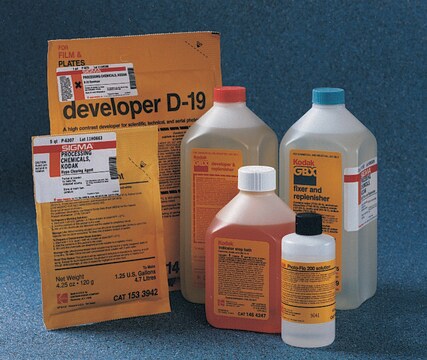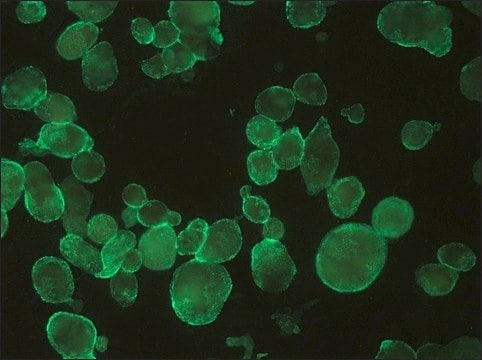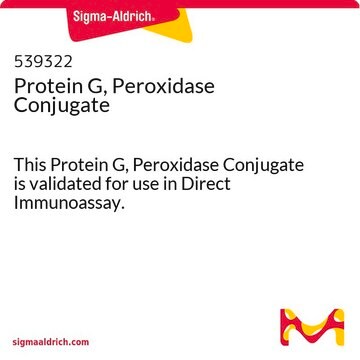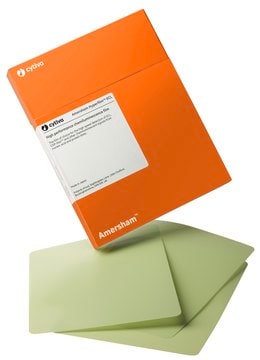AP127F
Goat Anti-Mouse IgG Antibody, Fc, FITC conjugate
Chemicon®, from goat
Sign Into View Organizational & Contract Pricing
All Photos(1)
About This Item
UNSPSC Code:
12352203
eCl@ss:
32160702
NACRES:
NA.46
Recommended Products
biological source
goat
Quality Level
conjugate
FITC conjugate
antibody form
F(ab′)2 fragment of affinity isolated antibody
antibody product type
secondary antibodies
clone
polyclonal
species reactivity
mouse
manufacturer/tradename
Chemicon®
technique(s)
immunofluorescence: suitable
shipped in
wet ice
target post-translational modification
unmodified
Application
Goat anti-Mouse IgG Antibody, Fc, FITC conjugate is an antibody against Mouse IgG for use in IF.
Research Category
Secondary & Control Antibodies
Secondary & Control Antibodies
Research Sub Category
Fragment Specific Secondary Antibodies
Fragment Specific Secondary Antibodies
Legal Information
CHEMICON is a registered trademark of Merck KGaA, Darmstadt, Germany
Disclaimer
Unless otherwise stated in our catalog or other company documentation accompanying the product(s), our products are intended for research use only and are not to be used for any other purpose, which includes but is not limited to, unauthorized commercial uses, in vitro diagnostic uses, ex vivo or in vivo therapeutic uses or any type of consumption or application to humans or animals.
Not finding the right product?
Try our Product Selector Tool.
Hazard Statements
Precautionary Statements
Hazard Classifications
Aquatic Chronic 3
Storage Class Code
11 - Combustible Solids
WGK
WGK 3
Certificates of Analysis (COA)
Search for Certificates of Analysis (COA) by entering the products Lot/Batch Number. Lot and Batch Numbers can be found on a product’s label following the words ‘Lot’ or ‘Batch’.
Already Own This Product?
Find documentation for the products that you have recently purchased in the Document Library.
Lian Zhou et al.
Molecular medicine reports, 25(1) (2021-11-19)
The cellular resistance of tumors is a major obstacle for successful tumor therapy. Cluster of differentiation (CD)133 plays an important role in the regulation of drug resistance in gastric and colon cancers. However, its effect on chemotherapeutic sensitivity in adenoid cystic
Noriaki Koyama et al.
Life sciences, 89(19-20), 741-747 (2011-10-01)
Mesenchymal stem cells are an interesting source of material for regenerative medicine. The present study aimed at characterizing the phenotype and differentiation potential of adherent synovial fluid-derived cells from temporomandibular joint (TMJ) disorder patients. Synovial fluid collection takes place during
Chenzhu Zhang et al.
Frontiers in pharmacology, 13, 866077-866077 (2022-05-17)
Background: A significant proportion of lupus nephritis patients develop chronic kidney disease (CKD) and progressive kidney fibrosis, for which there is no specific treatment. We previously reported that mycophenolate or rapamycin monotherapy showed comparable efficacy in suppressing kidney fibrosis in
Guang Song et al.
Genomics, proteomics & bioinformatics, 19(1), 108-122 (2021-02-22)
The Zika virus (ZIKV) and dengue virus (DENV) flaviviruses exhibit similar replicative processes but have distinct clinical outcomes. A systematic understanding of virus-host protein-protein interaction networks can reveal cellular pathways critical to viral replication and disease pathogenesis. Here we employed
Donghwa Kim et al.
The Journal of biological chemistry, 291(34), 17616-17628 (2016-06-28)
Bitter taste receptors (TAS2Rs) are G-protein-coupled receptors now recognized to be expressed on extraoral cells, including airway smooth muscle (ASM) where they evoke relaxation. TAS2Rs are difficult to express in heterologous systems, with most receptors being trapped intracellularly. We find
Our team of scientists has experience in all areas of research including Life Science, Material Science, Chemical Synthesis, Chromatography, Analytical and many others.
Contact Technical Service








